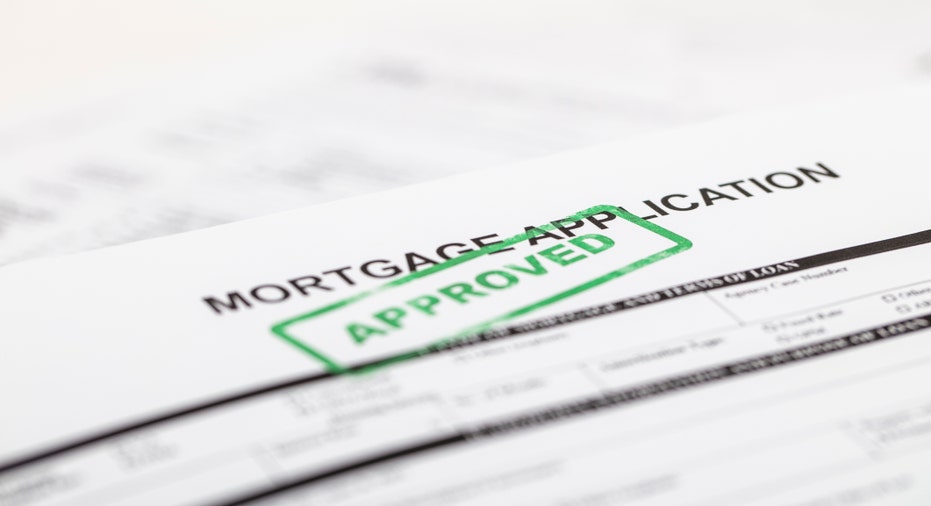Should you consider a 15-year mortgage? Here’s what you should know

With mortgage rates at historic lows, now is a great time to refinance your mortgage. But is a 30-year or 15-year mortgage the better option? We spoke to three mortgage experts to find out. (iStock)
Mortgage interest rates have reached all-time lows over the past year. When the coronavirus pandemic broke out, the Federal Reserve lowered rates. This made it more affordable than ever to buy a home or refinance an existing mortgage.
With refinance rates at historic lows, refinance applications initially skyrocketed and then ebbed and flowed throughout the year. According to data from the National Association of Realtors, they were on the rise again at the end of 2020.
One of the biggest decisions people face when refinancing a mortgage is whether to refinance to a 15-year or 30-year loan. In this article, we’ll break down a few factors to consider when choosing the right loan for you. If you’re thinking of refinancing, consider using Credible. You can use Credible's free online tool to easily compare multiple lenders and see prequalified rates in as little as three minutes.
Your interest rate
If you're considering whether or not to refinance your mortgage, there are a series of items to consider. The most significant factor that draws people to 15-year mortgages over 30-year ones is the interest rate. According to Freddie Mac, in the first week of February, the average rate on a 30-year mortgage was 2.73%. But the rate on a 15-year loan was just 2.21%.
Suppose you refinanced a $300,000 mortgage balance with a 30-year loan. You could expect to pay $139,865 in interest over the life of the loan. With a 15-year loan, you would pay just $52,763. That’s a difference of more than $87,000. This is where the comparison between your current mortgage and a mortgage refi pays off.
A site like Credible can be a big help when you’re ready to compare mortgage refinance loans. Credible lets you see prequalified rates from multiple lenders, all within a few minutes. Whether you want to build equity in the current real estate you have or if you just want lower monthly payments, Credible can help. Visit Credible today to get started.
The monthly payment
Another consideration when choosing between a 15 and 30-year mortgage refinance is the monthly payment you’ll pay. With a 15-year loan, you’re paying your balance down twice as fast. As a result, you’ll end up with a larger monthly payment but an overall lower interest rate.
“For many buyers, the challenge with a 15-year term is affordability,” said Chris Birk, Director of Education at Veterans United Home Loans. “Compressing your mortgage payments into a shorter span means you’re paying more in principal and interest each month than you would with a 30-year term. That higher payment can stretch budgets, limit your buying power or even put homeownership out of reach for some buyers.”
According to Birk, there might be a more effective way to save money on interest while still leaving some wiggle room in your budget.
“Buyers can also carve out a more flexible middle ground by taking a 30-year term and making additional payments to your principal balance each month or year,” Birk said. “Most loans today don’t come with prepayment penalties, meaning you can pay down your loan ahead of schedule without incurring fees or charges.”
An online mortgage refinance calculator can help you determine your new monthly costs and whether a 15-year refinance would be affordable for you.
Your other financial goals
As you weigh the options of refinancing to a 15-year versus a 30-year mortgage, it’s important to consider your other financial goals. Because of the larger monthly payments, 15-year loans mean less money available in your budget for other expenses.
“Generally, only people who are already saving enough for retirement, have a proper emergency fund, and do not have a credit card debt should consider a 15-year loan instead of a 30-year loan," said Brian Walsh, SoFi CFP. “If you do not meet those criteria then you would likely be better off focusing on the foundational aspects of your finances before aggressively paying down low-cost debt such as a mortgage.”
On the other hand, some financial goals may inspire you to opt for the 15-year loan and pay your loan down more quickly. Suppose you plan to retire in the next 15 to 20 years and want to own your home outright when that time comes. In that case, a 15-year mortgage might be the better option.
Your creditworthiness
While the lower interest rates might be attractive, not everyone will qualify for a 15-year refinance loan as they often have more stringent eligibility criteria. If you have bad credit, this could be problematic.
“When evaluating who qualifies for a refinance, lenders, look at criteria such as debt-to-income ratio, credit scores, employment history and other factors that paint a picture of a person’s financial situation and creditworthiness," said Glenn Brunker, President of Ally Home. “So be sure you're going into the home mortgage process with strong footing on all these factors.”
Next steps
Both the 15-year and 30-year refinance loans come with unique benefits, and there’s no one right answer for everyone. The pros and cons vary and, accordingly, it’s important to consider your financial situation to decide which is a better fit.
For help choosing the right refinance loan for you, you can visit Credible to get in touch with experienced loan officers who will answer all your mortgage questions. Credible also has a free online tool where you can compare multiple mortgage lenders and see prequalified rates in as little as three minutes.




















